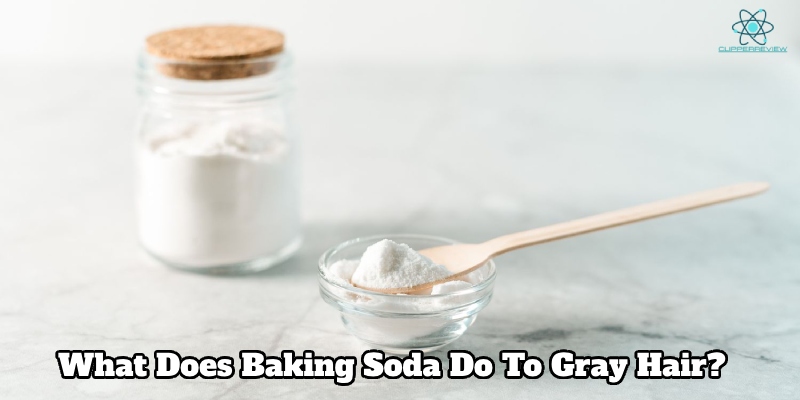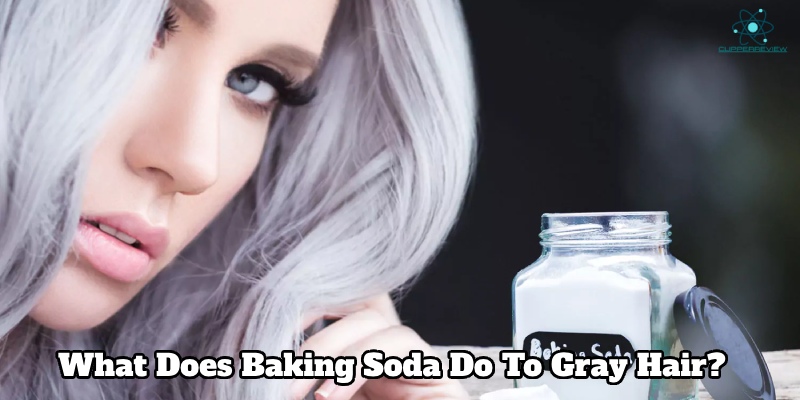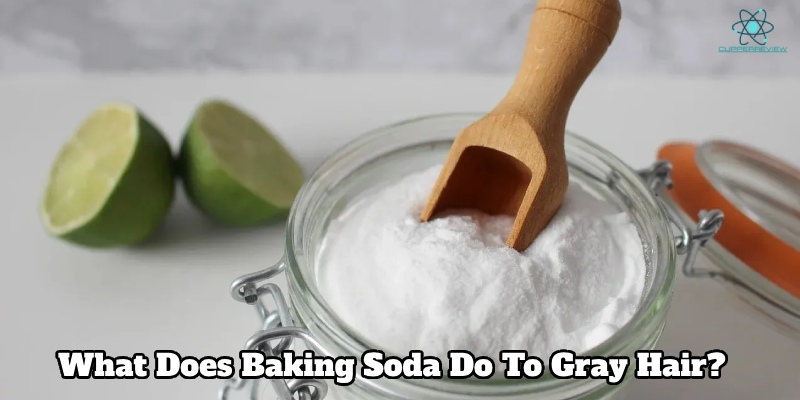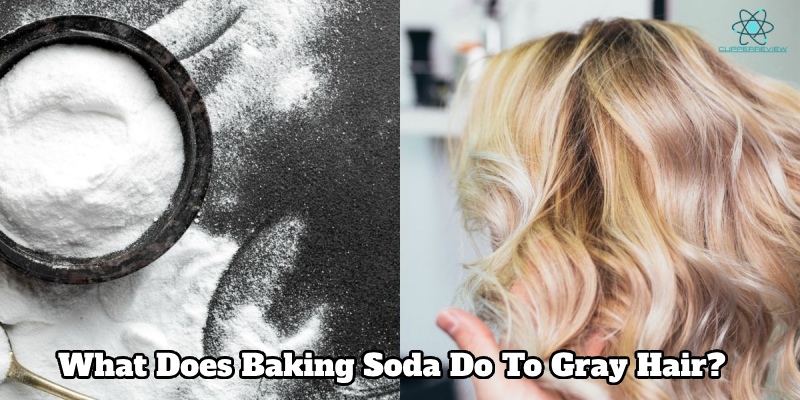What does baking soda do to gray hair? Does baking soda really have benefits for gray hair? And if so, we need to understand what those specific effects are. Let’s find out in detail about these effects with sodafountainofvenice.com and see if they are reliable or not.
What is baking soda?
Baking soda, also known as sodium bicarbonate, is a white crystalline powder used in baking as a leavening agent. It has a slightly alkaline flavor and is frequently used in baking recipes to help dough rise by releasing carbon dioxide gas when combined with acidic components such as vinegar, buttermilk, or yogurt. The dough expands and becomes light and fluffy as a result of this reaction.

In addition to its role in baking, baking soda has various household uses. It is known for its cleaning properties and is often used as a mild abrasive cleaner for surfaces. Baking soda can also be used in some personal care routines, such as a toothpaste or deodorant substitute.
While baking soda has numerous useful applications, it should be handled with caution in specific situations, especially when it comes to health and beauty. Using baking soda on the face or hair, for example, may not be suitable for everyone, and it is best to speak with a healthcare practitioner or a dermatologist before introducing it into your beauty routine.
What does baking soda do to gray hair? Continue reading the article.
What does baking soda do to gray hair?
Cleansing and Clarifying
Restoring pH Balance
Removal of Product Buildup
What are the possible side effects of using baking soda on hair?
What does baking soda do to gray hair? While some people find baking soda beneficial for certain hair care purposes, it’s important to be aware of potential side effects, as it may not be suitable for everyone. Here are some possible side effects of using baking soda on hair:
Dryness
Baking soda has alkaline properties, and using it on the hair can disrupt the natural pH balance. This may lead to dryness, as it can strip the hair of its natural oils. Dry hair is more prone to breakage and may appear dull.

Irritation
Baking soda may cause irritation to the scalp, especially for individuals with sensitive skin. It can be abrasive, and some people may experience redness, itching, or discomfort.
Hair Damage
The abrasive nature of baking soda can potentially damage the hair cuticle, leading to weakened and more brittle hair. Over time, this could contribute to increased breakage.
Color Fading
For individuals with color-treated hair, using baking soda may accelerate color fading. The alkaline nature of baking soda can open the hair cuticle, causing the color molecules to leach out more quickly.
Frizziness
Baking soda may alter the hair’s texture and contribute to frizziness, especially for those with curly or wavy hair.
Scalp Imbalance
Regular use of baking soda can disrupt the natural balance of oils on the scalp, leading to an overproduction of oil as the scalp tries to compensate for the dryness caused by baking soda.
Incompatibility with Certain Hair Types
Different hair types may react differently to baking soda. While some people may benefit from its clarifying properties, others may find it too harsh for their hair.
Frequency and notes when using baking soda on hair
If you decide to use baking soda on your hair, it’s important to do so cautiously and to be mindful of the frequency, as well as some key considerations. Here are some guidelines for using baking soda on hair:
Frequency
Infrequent Use
Use baking soda on your hair no more than once a month or less frequently. Frequent use can lead to dryness and potential damage.

Assess Your Hair’s Needs
Adjust the frequency based on your hair’s specific needs. If your hair tends to be oily, you might be able to use baking soda more often than someone with dry hair.
Preparation and Application
Dilute Baking Soda
Mix baking soda with water to create a diluted solution. A common ratio is 1 part baking soda to 3 parts water. This helps reduce its potential abrasive effects.
Create a Paste
If using baking soda as a scalp scrub, create a paste by mixing it with a small amount of water. Apply the paste to your scalp and massage gently.
Apply to Wet Hair
Wet your hair before applying the baking soda mixture. This can help distribute it more evenly and reduce the risk of irritation.
Focus on the Scalp
Concentrate on applying the baking soda mixture to the scalp rather than the length of your hair. The scalp is where oil and product buildup are most concentrated.
Rinse Thoroughly
Rinse your hair thoroughly after using baking soda. Ensure that there is no residue left on your hair or scalp.
Aftercare
Condition Your Hair
Follow up with a conditioner or a moisturizing treatment to counteract any potential dryness caused by the baking soda.
Use a pH-Balanced Conditioner
Opt for a pH-balanced conditioner to help restore the natural pH balance of your hair.
Monitor Your Hair’s Condition
Pay attention to how your hair responds. If you notice excessive dryness, irritation, or other adverse effects, discontinue use.

Consult a Professional
Before starting or continuing any baking soda treatment, consult with a professional hairstylist or dermatologist. They can provide guidance based on your hair type and specific needs.
In conclusion
What does baking soda do to gray hair? Using baking soda for gray hair is not only a scientific challenge, but also requires a solid understanding of each person’s specific hair and scalp type.


